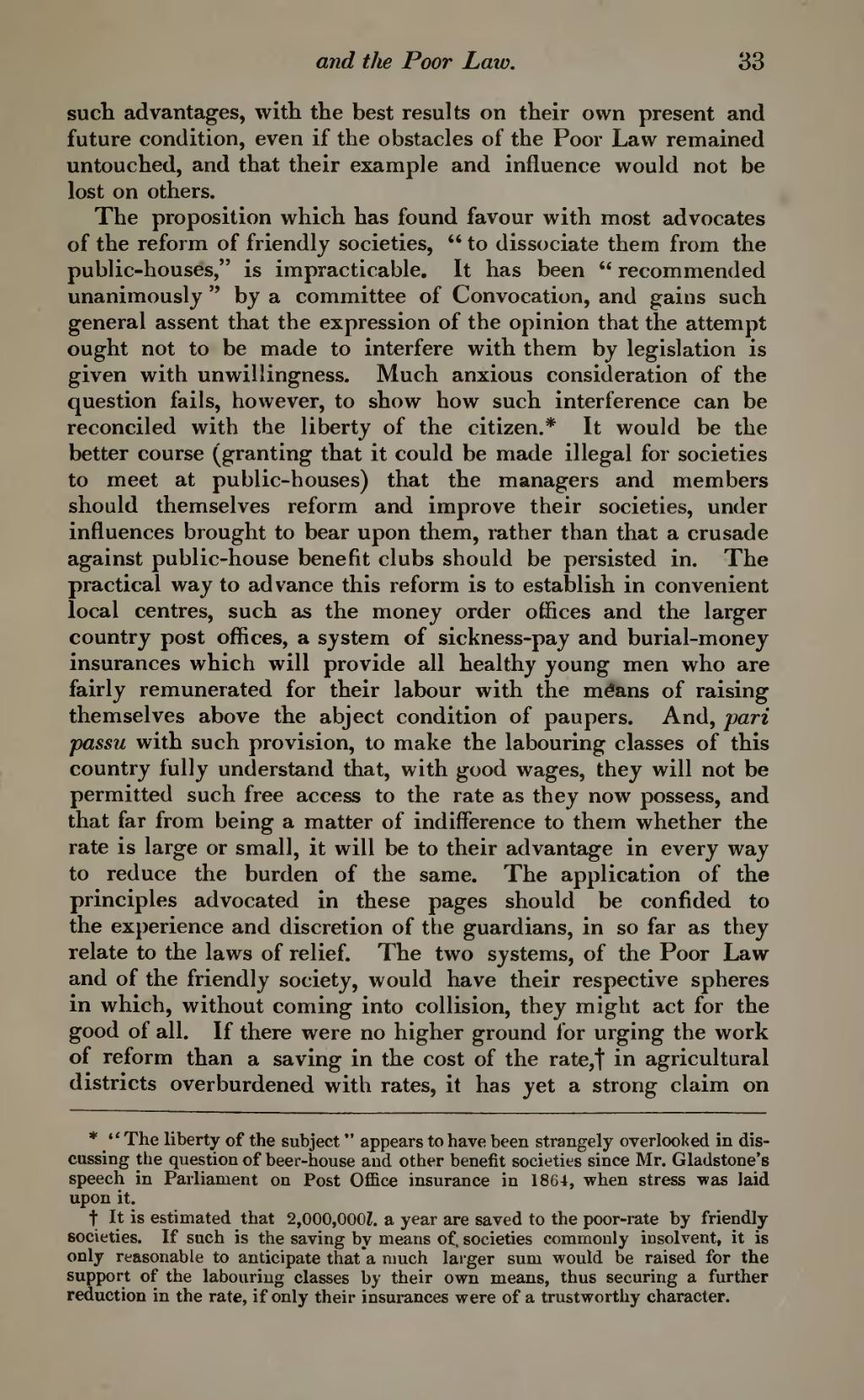such advantages, with the best results on their own present and future condition, even if the obstacles of the Poor Law remained untouched, and that their example and influence would not be lost on others.
The proposition which has found favour with most advocates of the reform of friendly societies, "to dissociate them from the public-houses," is impracticable. It has been "recommended unanimously" by a committee of Convocation, and gains such general assent that the expression of the opinion that the attempt ought not to be made to interfere with them by legislation is given with unwillingness. Much anxious consideration of the question fails, however, to show how such interference can be reconciled with the liberty of the citizen.[1] It would be the better course (granting that it could be made illegal for societies to meet at public-houses) that the managers and members should themselves reform and improve their societies, under influences brought to bear upon them, rather than that a crusade against public-house benefit clubs should be persisted in. The practical way to advance this reform is to establish in convenient local centres, such as the money order offices and the larger country post offices, a system of sickness-pay and burial-money insurances which will provide all healthy young men who are fairly remunerated for their labour with the means of raising themselves above the abject condition of paupers. And, pari passu with such provision, to make the labouring classes of this country fully understand that, with good wages, they will not be permitted such free access to the rate as they now possess, and that far from being a matter of indifference to them whether the rate is large or small, it will be to their advantage in every way to reduce the burden of the same. The application of the principles advocated in these pages should be confided to the experience and discretion of the guardians, in so far as they relate to the laws of relief. The two systems, of the Poor Law and of the friendly society, would have their respective spheres in which, without coming into collision, they might act for the good of all. If there were no higher ground for urging the work of reform than a saving in the cost of the rate,[2] in agricultural districts overburdened with rates, it has yet a strong claim on
- ↑ "The liberty of the subject" appears to have been strangely overlooked in discussing the question of beer-house and other benefit societies since Mr. Gladstone's speech in Parliament on Post Office insurance in 1864, when stress was laid upon it.
- ↑ It is estimated that 2,000,000l. a year are saved to the poor-rate by friendly societies. If such is the saving by means of, societies commonly insolvent, it is only reasonable to anticipate that a much larger sum would be raised for the support of the labouring classes by their own means, thus securing a further reduction in the rate, if only their insurances were of a trustworthy character.
